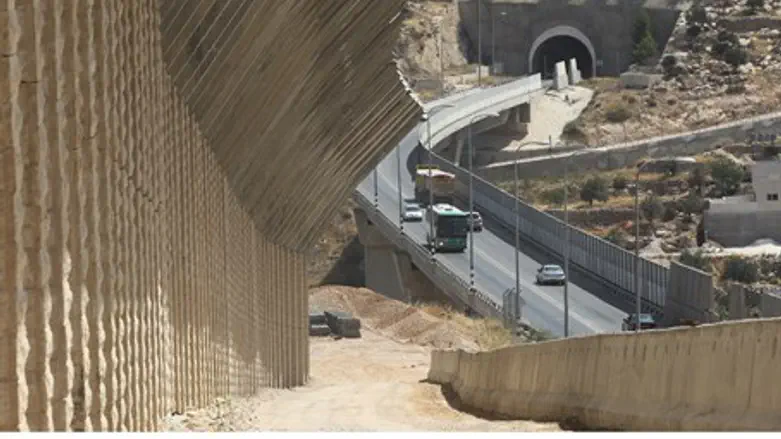
Diplomatic sources are trying to calm residents of Judea's Gush Etzion region Friday morning, following the sudden announcement yesterday that the Knesset will vote Sunday on building a security barrier separating the region from sovereign Israel.
"In any future peace agreement Gush Etzion will remain part of the state," the diplomatic sources in Jerusalem released in a statement, attempting to placate infuriated Jewish and Arab residents of the region.
However, Efrat Mayor Oded Ravivi was not convinced by the message or by the need for the barrier, which was approved in 2006 and according to critics is out of date with the current security reality.
"The events of last summer teach us the inefficiency of a barrier in creating security," Ravivi told Galei Tzahal (IDF Radio), referring to the more than 30 Hamas terror tunnels found entering Israel from Gaza during Operation Protective Edge - tunnels that reconstruction has reportedly already begun on.
Ravivi added that his city provides additional proof of the extraneous nature of security barriers, claiming "Efrat to this day is not surrounded by a barrier, and to this day enjoys excellent neighborly relations with the two (nearby) Arab villages."
Joining Ravivi's opposition to the barrier plan was Gush Etzion Regional Council head Davidi Perl, who called the decision for a "separation barrier in the Gush Etzion region surprising and superfluous."
"In days in which the government is forced to conduct painful budget cuts in education, welfare, health and services to citizens, it is inappropriate to invest an enormous sum of 300 million shekels ($82 million) to a project with an insignificant benefit to security," argued Perl.
"There are much more meaningful and pressing security projects, such as a bypass road around El Aroub, waiting for the Defense Ministry," added Perl. "We hope the Defense Minister will stop the decision, will value tax-payer money, and will first of all worry about the security needs of Gush Etzion residents while coordinating with the regional council."
The path of the security barrier that is on the docket for Sunday's vote would leave Gush Etzion not part of the contiguous territory surrounded by the security border of "Israel proper." Residents have staved off such plans for years, saying it would split their communities.
While some have claimed the security barrier prevents terrorists from entering Israel, critics argue the reduction in terrorism in recent years has been due to the IDF redeploying to areas in Judea and Samaria it had abandoned in the wake of the 1993 Oslo Accords.
Indeed, video evidence in July during the IDF operation to search for three abducted Israeli teens later found to have been murdered by Hamas terrorists showed Arab residents of Judea continuing to breach the security barrier.